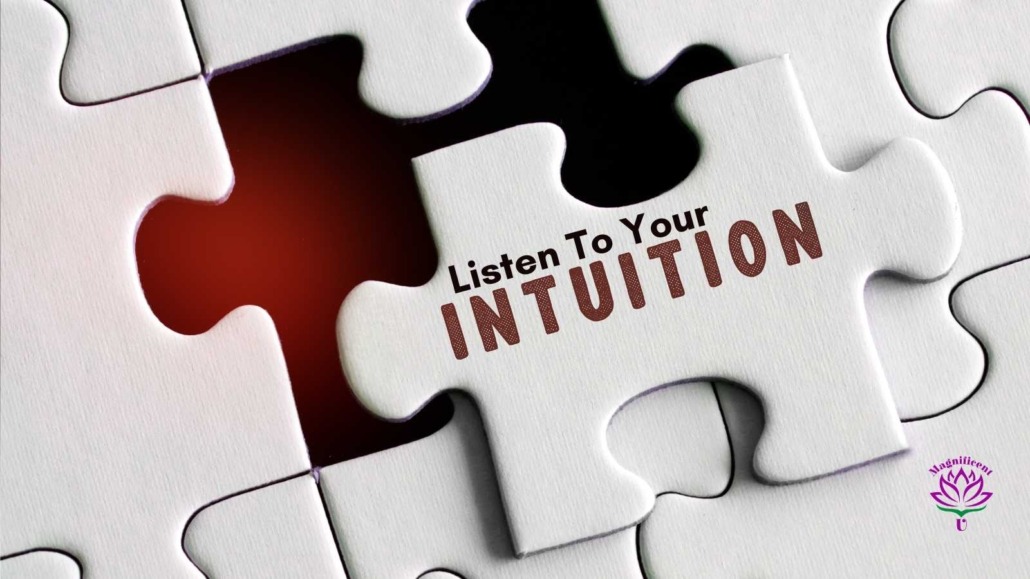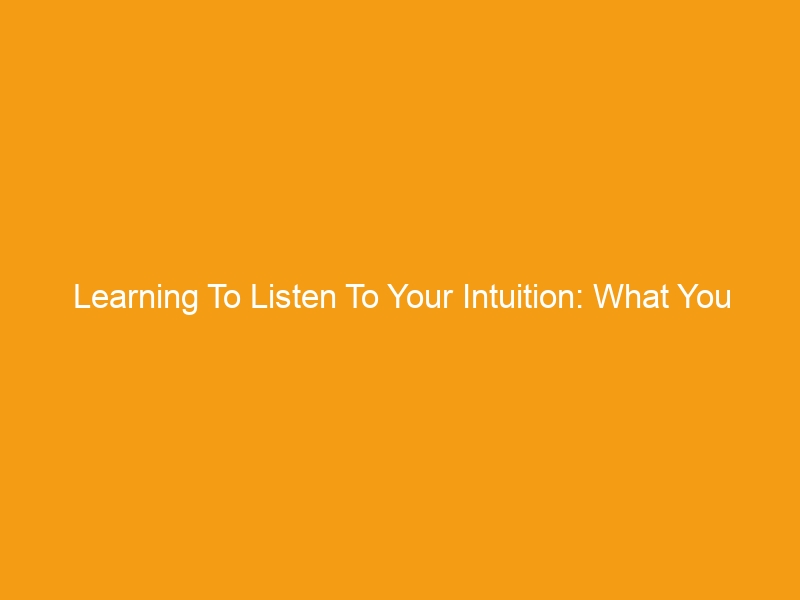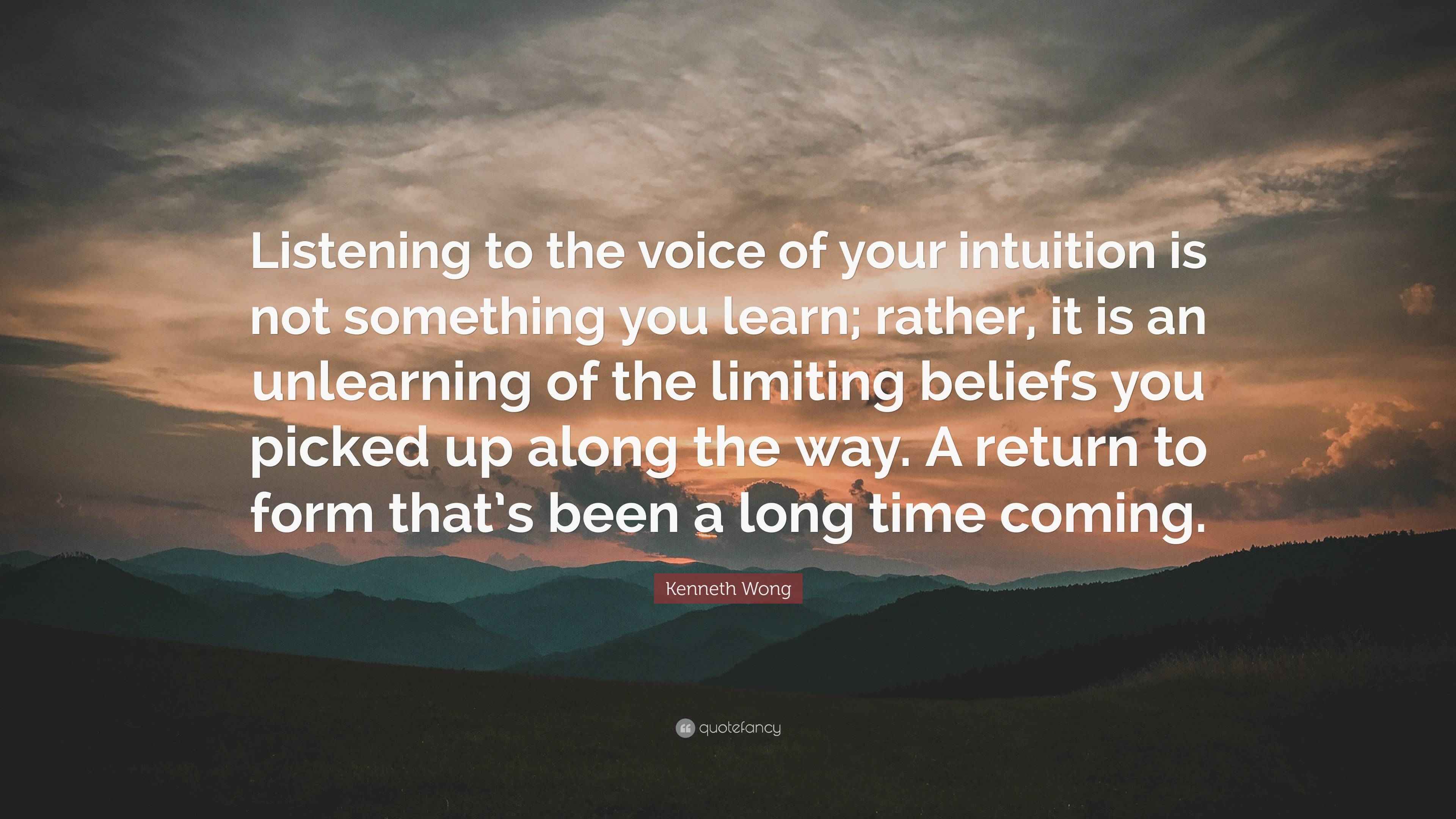Learning To Listen To Your Intuition

In a world saturated with data and external influences, many are finding themselves increasingly disconnected from their inner compass. This disconnect often leads to feelings of uncertainty, anxiety, and a diminished sense of personal agency. A growing number of individuals are actively seeking ways to reclaim their intuitive abilities and use them as a powerful tool for decision-making and navigating life's complexities.
At the heart of this trend lies the recognition that intuition, often dismissed as a mere "gut feeling," is a sophisticated cognitive process rooted in experience, pattern recognition, and emotional intelligence. Learning to listen to and trust your intuition can lead to improved decision-making, enhanced creativity, and a greater sense of self-awareness. However, developing this skill requires conscious effort, mindfulness, and a willingness to challenge ingrained societal norms that prioritize logic and reason above all else.
The Science Behind the "Gut Feeling"
While often perceived as mystical, intuition has a basis in neuroscience. Studies suggest that intuitive insights arise from the brain's ability to process information unconsciously, drawing on a vast database of past experiences and knowledge.
According to Dr. Judson Brewer, Director of Research and Innovation at Brown University’s Mindfulness Center, the insula, a brain region associated with interoception (the awareness of internal bodily states), plays a crucial role in intuitive processing. The insula helps us become aware of subtle physiological cues, such as changes in heart rate or gut sensations, which can signal potential threats or opportunities.
“Intuition isn’t some magical force; it’s your brain making connections you’re not consciously aware of," Dr. Brewer explains. This rapid, subconscious processing can often provide valuable insights that complement conscious analysis.
Practical Techniques for Cultivating Intuition
Several techniques can help individuals develop and refine their intuitive abilities. Mindfulness meditation, for example, can increase awareness of internal sensations and thoughts, allowing for a clearer perception of intuitive signals.
Journaling can also be a powerful tool for tracking intuitive insights and identifying patterns over time. Regularly recording thoughts, feelings, and experiences can help individuals discern between genuine intuition and fear-based reactions or wishful thinking.
Furthermore, creating space for quiet reflection and disconnecting from external stimuli can allow the mind to quiet down and create the conditions for intuitive insights to surface. Engaging in creative activities, such as painting, music, or writing, can also tap into intuitive channels.
Challenges and Criticisms
Despite the potential benefits, cultivating intuition is not without its challenges. Skeptics argue that relying on intuition can lead to biased decision-making and a lack of critical thinking. It is important to note that intuition should not be used as a substitute for reasoned analysis, but rather as a complementary tool.
Another challenge is the difficulty in distinguishing between genuine intuition and mere wishful thinking. Self-deception can easily cloud judgment and lead to poor decisions. Developing self-awareness and a willingness to question one's own biases is crucial for mitigating this risk. A balanced approach, combining intuitive insights with rational analysis, is often the most effective strategy.
The American Psychological Association emphasizes the importance of critical thinking skills in evaluating information and making informed decisions, regardless of whether intuition plays a role.
The Role of Intuition in Leadership and Innovation
Increasingly, leaders and innovators are recognizing the value of intuition in navigating complex and uncertain environments. Steve Jobs, for instance, was known for his reliance on intuition when making critical decisions at Apple. He believed that intuition could provide insights that traditional market research and data analysis could not.
Research from the Harvard Business Review suggests that leaders who cultivate their intuitive abilities are better equipped to anticipate market trends, identify opportunities, and make decisive choices under pressure. However, these leaders also emphasize the importance of balancing intuition with data-driven analysis and feedback from trusted advisors.
Looking Ahead: Embracing Intuition in a Complex World
As the pace of change continues to accelerate, the ability to tap into one's intuition will likely become an increasingly valuable asset. In a world overwhelmed with information, intuition can serve as a powerful filter, helping individuals prioritize information and make decisions that align with their core values and goals.
However, it is crucial to approach the development of intuitive abilities with a critical and discerning mind. By combining intuition with rational analysis and self-awareness, individuals can harness the power of their inner compass to navigate the complexities of modern life and create a more fulfilling and meaningful existence.
Ultimately, learning to listen to your intuition is not about abandoning reason or logic, but rather about embracing a more holistic approach to decision-making that integrates both conscious and unconscious processes. It's about fostering a deeper connection with yourself and trusting the wisdom that resides within.










.jpg?format=1500w)







